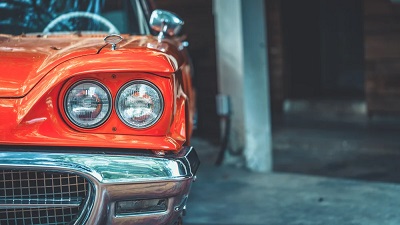Introduction:
Classic cars evoke nostalgia, passion, and a sense of automotive history. For enthusiasts and collectors, delving into the lineage of these vintage vehicles is akin to unraveling a rich tapestry of automotive heritage. In this article, we embark on a journey through time, exploring how VIN decoders are revolutionizing the way we understand and appreciate classic cars.
Preserving Automotive Heritage:
Classic cars hold a special place in the hearts of enthusiasts, embodying an era of craftsmanship, design, and engineering excellence. Each vehicle tells a unique story, reflecting the cultural, technological, and societal influences of its time. However, as the years pass, the documentation and historical records associated with these vehicles can become fragmented or lost. VIN decoders offer a lifeline to preserving automotive heritage by providing a comprehensive digital archive of classic car information.
Decoding the Classics:
Unlike modern vehicles with standardized VIN formats, classic cars may bear VINs that vary in structure and complexity. VIN decoders tailored to classic cars possess the expertise and knowledge needed to interpret these unique identifiers, unlocking a treasure trove of information about a vehicle’s origins, specifications, and production history. From iconic muscle cars of the 1960s to elegant European roadsters of the 1950s, VIN decoders offer enthusiasts a glimpse into the past, revealing the secrets hidden within the VINs of classic cars.
Understanding Production Details:
One of the joys of owning a classic car is discovering its production details and provenance. VIN decoders provide enthusiasts with access to factory specifications, production numbers, and optional equipment codes, allowing them to authenticate and verify the authenticity of their vehicles. Whether it’s confirming a rare factory option or tracing a car’s journey from the assembly line to the showroom floor, VIN decoders offer a window into the past, enriching the ownership experience for classic car enthusiasts.
Navigating Restoration Projects:
For enthusiasts undertaking restoration projects, VIN decoder serves as invaluable tools for sourcing authentic parts and components. By decoding the VIN, enthusiasts can identify the correct specifications for their vehicles, ensuring that restoration efforts adhere to factory standards and authenticity. Additionally, VIN decoders help enthusiasts trace the lineage of their classic cars, uncovering previous owners, service records, and historical documentation that may inform restoration decisions and add to the vehicle’s provenance.
Preserving Value and Authenticity:
Maintaining the originality and authenticity of classic cars is essential for preserving their value and cultural significance. VIN decoders assist collectors and enthusiasts in verifying the authenticity of classic cars, safeguarding against counterfeit or misrepresented vehicles. By providing accurate and transparent information about a vehicle’s history and specifications, VIN decoders contribute to maintaining the integrity of the classic car market and ensuring that these automotive treasures are passed down to future generations in their truest form.
Conclusion:
In the world of classic cars, where every vehicle tells a story and every VIN holds a clue to its past, VIN decoders play a vital role in preserving automotive heritage and enriching the ownership experience for enthusiasts. From decoding production details to navigating restoration projects and preserving authenticity, VIN decoders are indispensable tools for unlocking the mysteries of classic cars and celebrating their timeless appeal. As enthusiasts continue to cherish and restore these automotive icons, VIN decoders will remain trusted companions on their journey through automotive history.




